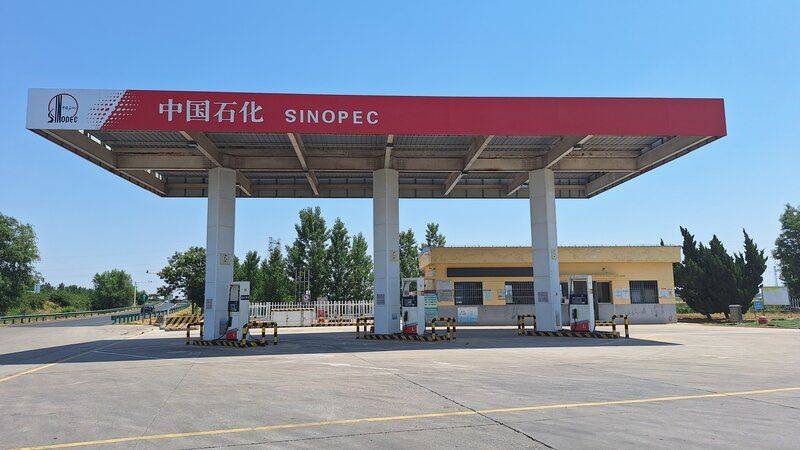Executive View: Impact of Diesel Subsidy Abolishment

With Malaysia’s government abolishing the subsidies for Diesel, a number of issues arising have been identified. The roll-out of the Fleetcard to allow transporters to acquire discounted Diesel has been slow while cases of unjustified price hikes have also been reported as being the result of this measure. While smaller operators may not feel the effect of the abolishment of the Diesel subsidies, larger companies may have to deal with additional hidden cost increases that impact them. Talking to Asian Trucker was R.A. Rao, Chief Operating Officer of BIFORST Logistics Sdn Bhd to discuss the issues that they have already identified as impacting their operation.
Adapting to New Prices
“Looking back, this is not the first time fuel prices have increased. I remember the price of Diesel being 70 cents per litre when I started my career in 2000.” Citing the fluctuating prices of crude oil vis-à-vis the need to balance the government’s accounts, he, as many others, welcome the move to adjust the subsidies. Citing the recent break-down of the Venezuelan economy, it should be a welcome move to ensure the sustainability of the economy by not excessively spending tax dollars. Over time, the industry will adapt to the new pricing scheme, it should just have been better managed, as Rao opined.
Considering the fact that each organisation is different, Rao acknowledges that some operators will not feel the impact. It is larger operations that will feel a significant impact. Bifost operates over 200 trucks, many using more than 20 000 litres of Diesel per month, with an allowance of only 6 000 litres per truck.
Indirect Impact
When talking about the use of Diesel, one has to factor in any indirect cost to the business as Rao explains. For instance, tow trucks and tyre men would not be entitled to Diesel subsidies under the new regulation. Hence, the increase in fuel cost will be reflected in the cost to the transporters using their services. “It could be RM 50 more per call. We understand that the cost has gone up and that this will have to be reflected in their fees. We may just need to question if the calculation is done right. There are no clear guidelines.”
Rao also sees the same happening with spare parts now. Vendors used to send out orders right away. Now they argue that the cost of shipping small orders is prohibitive and they now wait until they have full truck loads before they send out the orders. This means that transporters may end up having to wait for parts and additional downtime will be incurred. Alternatively, higher delivery charges may have to be paid if the parts are to be shipped urgently. “Take windscreens for example: windscreens are insured with a fixed sum. If I need one urgently, I may have to chip in as the cost, including the delivery, now exceeds the sum insured.”
Companies using buses to move their workers may also be impacted. As stated in a recent article, in theory, many bus operators would not be eligible to subsidised Diesel. However, there has never been a system in place whereby the eligibility would be checked when pumping fuel. One would simply pay the stated cost per litre. Now, with the new scheme in place, bus operators will have to re-calculate as they previously would have used the actual price paid, not the unsubsidised fuel cost to bid for jobs.
One such issue that could be managed better is the linkage between the various systems, such JPJ and MYSIKAP. For instance, when the road tax and PUSPAKOM are being renewed, finishing on 25th of the month for example, and it is being renewed on the 26th, the truck will only be eligible for subsidies the following 1st of the month. This means, that there could be a few days of operation where the truck is operating without the subsidised fuel.
Added Administration
With the new subsidy regiment in place, Rao and his team notice that the administrative effort has increased many-fold. As their fleetcard has yet to arrive, receipts need to be kept in order to claim back later. “There is no mechanism at the pump to determine which price to apply when pumping Diesel,” Rao said, acknowledging that the staff at the stations would have no authority to refuse or authorise different prices to be used. Previously, one would buy Diesel according to an amount of money, saying how many Ringgits worth of fuel one wanted. With the fleetcard, one would have to refill based on litres, as the amount dispensed would be deducted from the contingent allowed per truck.
Many transporters would invoice fuel as a separate position in their contracts with clients. With the allowance for subsidised Diesel, a new administrative issue arises: Purchase orders, invoices and actual cost do not tally. When a client is billed for the trips carried out for them, the fuel cost may be reflected with the new cost. However, as a transporter would be entitled to subsidised fuel using the Fleetcard, the actual cost would be lower. Accounts would have to invoice as per purchase order though, without being able to reflect the reduction in cost. Eventually, a transporter would have to issue a credit note after the transactions have concluded. “And what happens when the auditors check and ask why we issue Credit Notes on proper purchase orders? If there will be another change before the end of the year, when we finalise our accounts?” Loosing a receipt may result in the loss of several hundred Ringgit, meaning that a simple careless act could eat up all the profit for a trip.
After a few weeks of the new scheme being in place, Rao estimates that it will take about two or three additional staff per base to manage the additional administrative work.
Offsetting Effects
Idling has been identified as a huge contributor to the fuel consumption for trucks. Reduced idling could be seen as a way to counter the increase in fuel cost. However, many operations and set-ups do not permit that the trucks will be switched off when fulfilling jobs. Traffic jams and the lack of places where drivers can rest result in the trucks being run almost constantly. “If there were enough places for our drivers to rest, then they wouldn’t need to sleep in the truck with the aircon on.” Rao said. Parking coolers could be an option for transporters to use to reduce fuel consumption, however, the net effect will still be an increase in fuel cost according to him.
Instead of cutting fuel subsidies, there could be alternatives, as Rao reflects. In his view, reducing taxes on commercial vehicles would help transporters already to deal with rising costs. “When we look at other countries, we note that their fuels are also expensive, but their trucks are cheaper.” Wanting to position the country as logistics hub, the government can also consider other ways to spur the industry, for instance by making vehicle ownership and purchases easier as the current system of licencing is seen as stifling by many in the industry.








